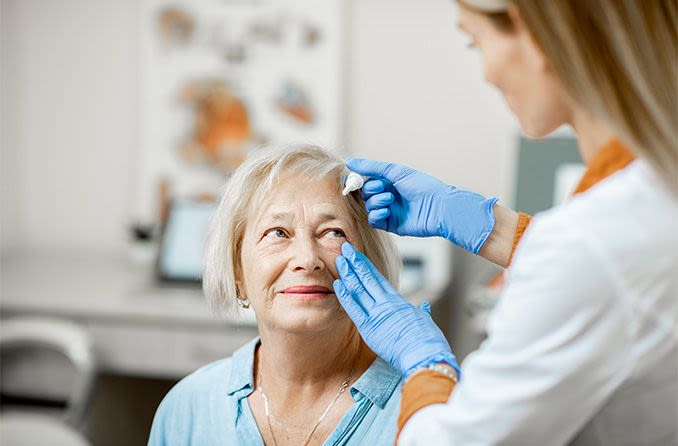Is Diabetic Retinopathy Reversible?

Can Diabetic Retinopathy Be Reversed?
Diabetic retinopathy is a serious eye condition that affects individuals with diabetes, potentially leading to vision loss if left untreated. If you’re living with diabetic retinopathy, you may wonder if there’s a way to reverse the damage and regain clear vision. In this blog post, we’ll explore the possibility of reversing diabetic retinopathy, treatment options, and steps you can take to manage this condition effectively.
Understanding Diabetic Retinopathy
Diabetic retinopathy is a complication of diabetes that occurs when high blood sugar levels damage the blood vessels in the retina, the light-sensitive tissue at the back of the eye. Over time, these blood vessels may leak fluid or bleed, leading to vision problems and even blindness if left untreated. Diabetic retinopathy typically progresses through stages, from mild nonproliferative retinopathy to more advanced proliferative retinopathy.
Is Reversal of Diabetic Retinopathy Possible?
While diabetic retinopathy cannot be completely reversed, early detection and appropriate treatment can help slow or halt the progression of the disease and preserve remaining vision. The goal of treatment is to manage risk factors, reduce symptoms, and prevent further damage to the retina.
Treatment Options for Diabetic Retinopathy
Several treatment options are available to manage diabetic retinopathy and prevent vision loss:
- Laser Therapy: Laser treatment, such as focal laser photocoagulation or panretinal photocoagulation, may be used to seal leaking blood vessels, reduce swelling, and prevent the growth of abnormal blood vessels in the retina.
- Intraocular Injections: Anti-VEGF medications injected into the eye can help reduce swelling and block the growth of abnormal blood vessels, slowing the progression of diabetic retinopathy and preserving vision.
- Vitrectomy: In advanced cases of diabetic retinopathy where bleeding or scar tissue clouds the vitreous gel, a vitrectomy may be performed to remove the blood and scar tissue and improve vision.
- Managing Diabetes: Controlling blood sugar levels, blood pressure, and cholesterol through medication, diet, exercise, and lifestyle modifications is essential for managing diabetic retinopathy and reducing the risk of further complications.
Steps You Can Take after Diabetic Retinopathy Diagnosis
If you have diabetic retinopathy, there are steps you can take to manage the condition and potentially improve your eye health:
- Attend Regular Eye Exams: Schedule regular eye exams with an ophthalmologist who specializes in diabetic eye care. Early detection and timely treatment are crucial for preserving vision and preventing irreversible damage.
- Control Diabetes: Work closely with your healthcare team to manage your diabetes effectively. Monitor blood sugar levels regularly, take prescribed medications as directed, and follow a healthy lifestyle to minimize the risk of diabetic complications.
- Maintain Healthy Habits: Adopting healthy habits such as eating a balanced diet, exercising regularly, avoiding smoking, and managing stress can support overall health and improve outcomes for diabetic retinopathy.
Diabetic Retinopathy treatment at SightMD
While reversing diabetic retinopathy may not be possible, early detection, timely treatment, and proactive management can help preserve vision and prevent further damage to the retina. By working closely with your healthcare team and adopting healthy lifestyle habits, you can take control of your eye health and minimize the impact of diabetic retinopathy on your vision.
If you have diabetic retinopathy or are at risk for developing this condition, schedule an appointment with the experienced ophthalmologists at SightMD. Our team is dedicated to providing comprehensive diabetic eye care and personalized treatment options to help you achieve optimal eye health and vision clarity.


